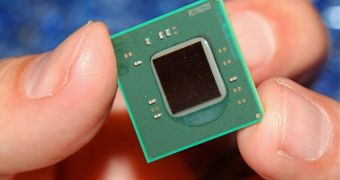The Intel Atom platform has been, for quite some time, Intel's solution for entry-level mobile PCs and even tablet PCs. On the other hand, in parallel with the rise of the media tablet, the ARM architecture spawned a number of quite powerful CPUs, even dual-core models. SoCs (system-on-chip) such as the NVIDIA Tegra 2 have also debuted. In the midst of these product launches, it appears that the Atom, and the upcoming Oak Trail platform, have lost some of their allure.
The Oak Trail platform that the Santa Clara, California-based company plans to launch soon will use up about 50% less power than the current Atom chips when playing Full HD videos. it also supports MeeGo and Android, besides just the Windows 7 operating system. The CPU maker is even negotiating with several PC makers based in Taiwan, in order to show off tablet PCs powered by its technology at IDF 2010 (Intel Developer Forum 2010). IDF will be held in September in the US and, while vendors agreed to demonstrate engineering samples, they will only mass-produce such electronics if market demand is high enough.
According to the report made by Digitimes, the Atom and Windows combination is not as well seen as the ARM-Android one. As such, vendors will only launch Atom-and-Windows-based models in small volumes, in order to maintain their relationship with Intel and Microsoft and to gauge demand. They will not risk with high inventories right off the bat, however, and will focus more on solutions based on the ARM architecture. This means that they will buy processors from the likes of Qualcomm, NVIDIA and Freescale.
According to the report, Intel said that it still sees a strong potential for its Atom and Oak Trail offerings and that it expects strong adoption on the part of the industry, not just on tablets but on future netbooks as well.

 14 DAY TRIAL //
14 DAY TRIAL //